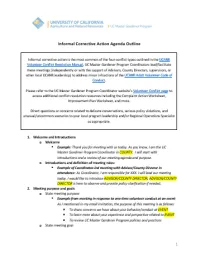Conflict is a normal, to-be-expected part of the volunteer engagement process. While conflict itself is not extraordinary, the management or mismanagement of conflict can have extraordinary impacts on staff/volunteer satisfaction, community well-being, and program success. In the UC Master Gardener Program conflict can occur between volunteers, volunteers and staff, and volunteers and the public.
The UCANR Volunteer Conflict Resolution Manual is intended to serve as a process guide for working through infractions of the UCANR Adult Volunteer Code of Conduct. When there is a complaint or conflict regarding an individual, situation, or event, refer to the policies and procedures as specified in this document.
Submit your ideas or comments on the Conflict Resolution Feedback Survey.
Questions? Contact:
Marisa Coyne
Assistant Director, Volunteer & Community Engagement
macoyne@ucanr.edu
Katherine Uhde
Regional Operations Specialist, Region 1
kuhde@ucanr.edu
Kristian Salgado
Regional Operations Specialist, Region 2
kmsalgado@ucanr.edu
Volunteer Code of Conduct:
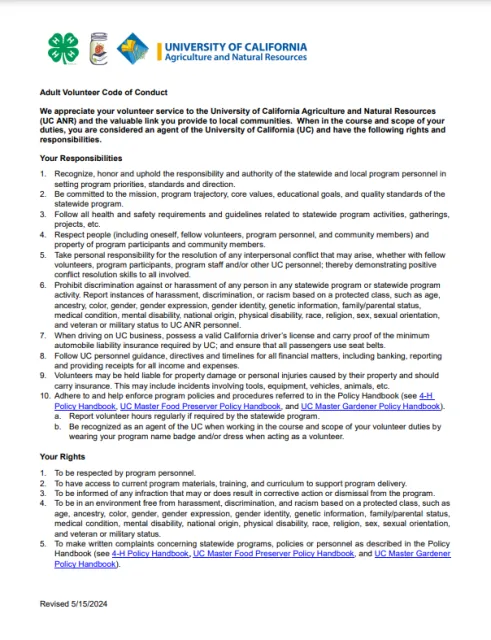 | The UCANR Volunteer Code of Conduct outlines the responsibilities, expectations, and rights of volunteers in the UC Master Gardener, UC 4-H Youth Development, and UC Master Food Preserver Programs. UC Master Gardener Program volunteers sign the code of conduct annually as part of their Reappointment process. |
Volunteer Conflict Resolution Manual:
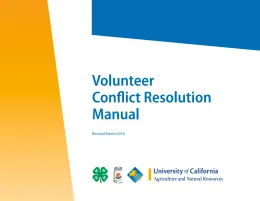 | As part of UC ANR's effort to improve program administration and volunteer satisfaction, 4-H, UC Master Food Preserver and UC Master Gardener representatives created the UC ANR Volunteer Conflict Resolution Manual. Representatives researched best practices for how to manage and resolve conflict to create a better process that is now being used across all statewide volunteer programs. The most recent version, updated in 2021, includes information related to UC ANR's new partnership with the UC Davis Harassment Discrimination Assistance and Prevention Program (HDAPP) unit. |
Complaint Form:
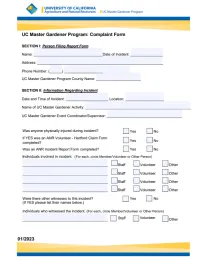 | The UC Master Gardener Program Complaint Form is an optional resource that coordinators can use to capture information about an incident or issue. This resource is available to coordinators via the link above. |
Complaint Action Worksheet:
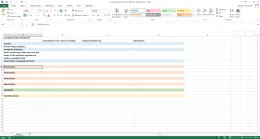 | When a complaint or conflict occurs, documentation of relevant evidence is necessary for legal purposes. Use the Complaint Action Worksheet or another similar tool to collect and organize the information you collect. This worksheet is available to coordinators via the link above and left. |
Improvement Plan Worksheet:
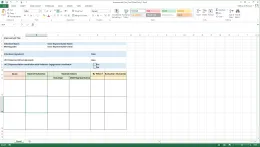 | Improvement plans may include coaching, training, mentoring or a position change for a volunteer. Use the Improvement Plan Worksheet or other similar tool to organize, communicate, and agree to desired outcomes, actions and timeline for the resolution of a complaint or conflict. This worksheet is available to coordinators via the link above and left. |
Informal Volunteer Meeting Agenda Outline:
| UC Master Gardener Program Coordinators lead/facilitate informal corrective action meetings to address minor infractions of the UCANR Adult Volunteer Code of Conduct. The Informal Corrective Action Agenda Outline may be used as a guide for developing a volunteer meeting agenda. This template or outline is available to coordinators via the link above and left. |
Additional DOJ Offenses + HDAPP Resources:
| ANR Volunteer Barrier Offenses List: | ANR Procedures - Volunteer's DOJ Report Indicates Arrest and/or Conviction: | UC Davis Harassment Discrimination Assistance and Prevention Program (HDAPP) | ||
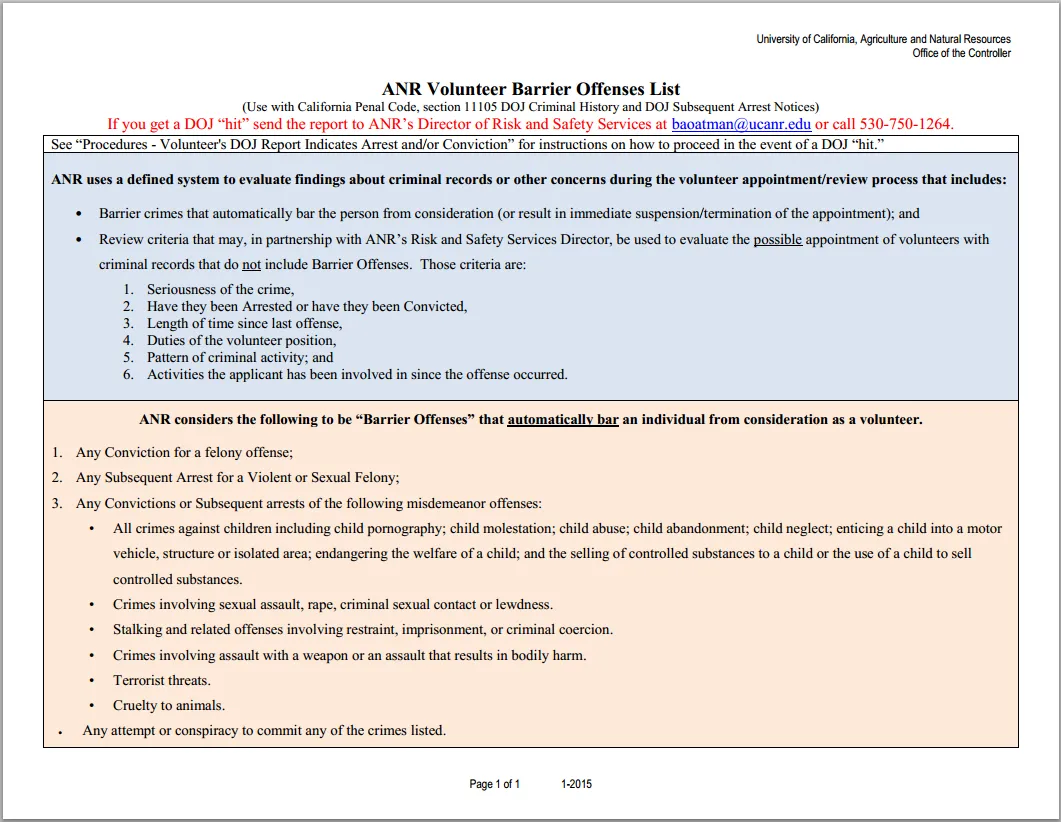 | 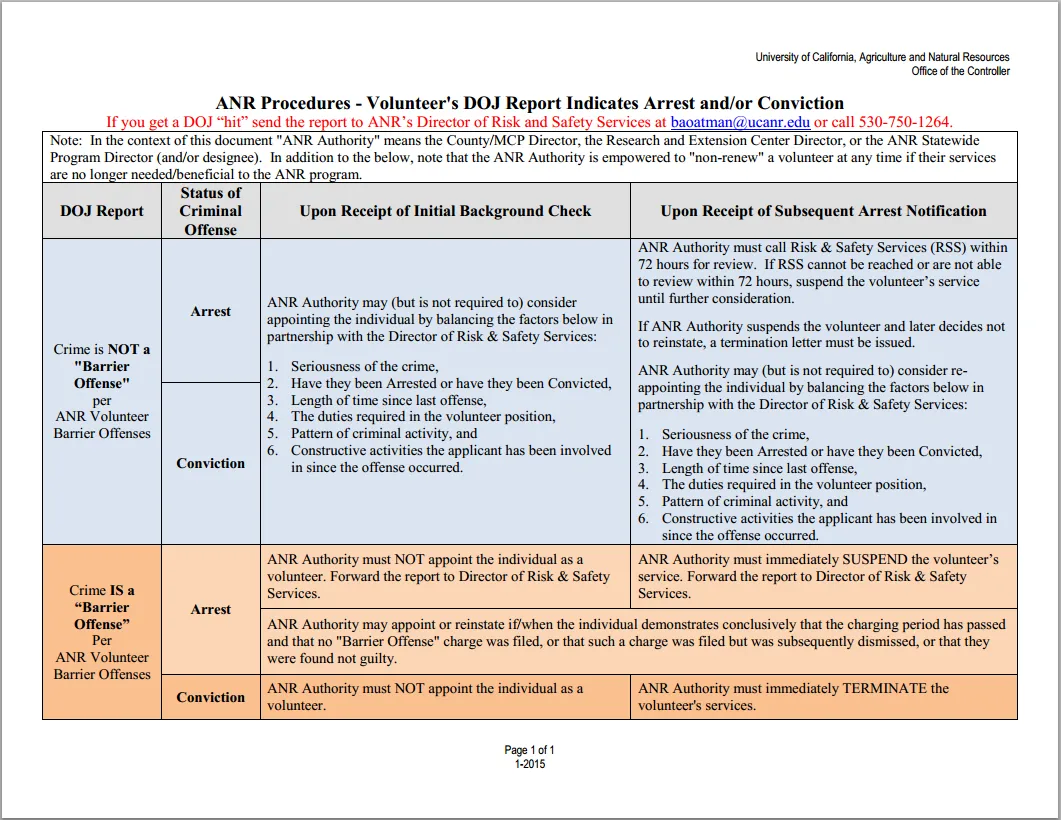 | 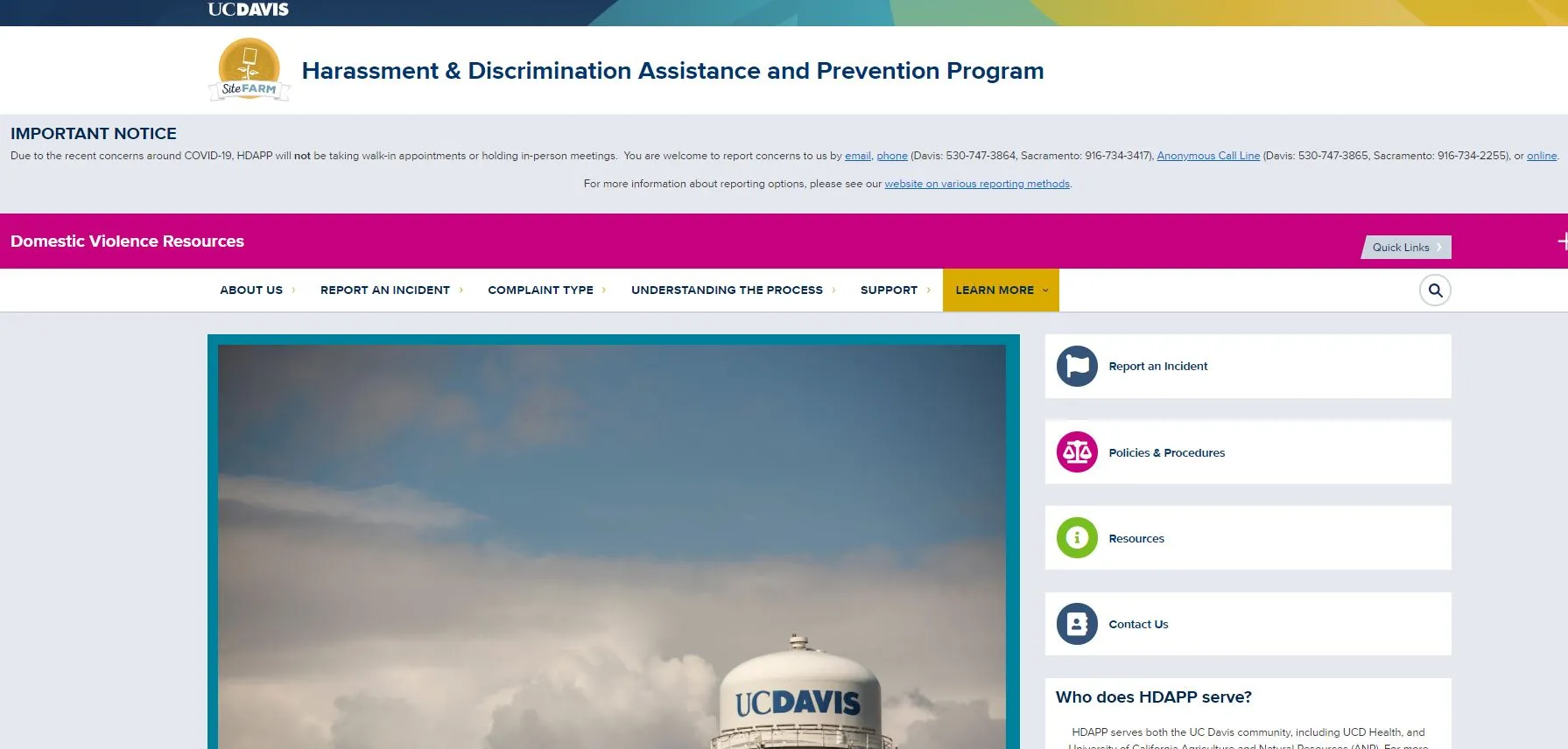 |
Volunteer Conflict Resolution Webinar (Dec 2024):
This 75-minute webinar for UC Master Gardener Program Coordinators reviewed the four conflict types outlined in the UCANR Volunteer Conflict Resolution Manual as well as procedures for resolving each conflict type. The webinar concludes with a group discussion of 6 common and complex conflict scenarios. Resources, including the conflict scenarios and conflict scenario key are linked in the description box of the webinar recording embedded above.

